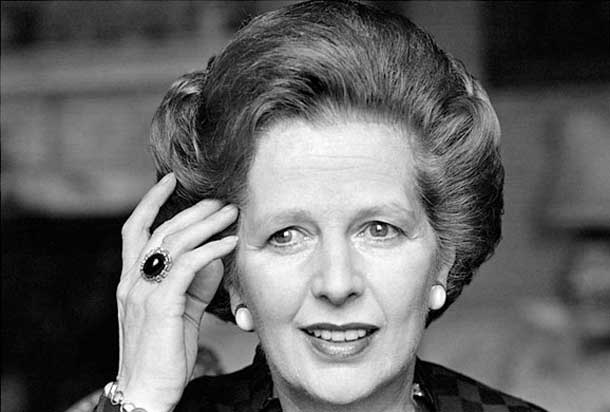
THUNDER BAY – Editorial – With the sad passing of former British Prime Minister Margaret Thatcher, I thought I’d reproduce a column I wrote four years ago.
Canada Needs a Thatcher
After each federal election, I always ask myself the same question: Why can’t Canada produce a leader like former British prime minister Margaret Thatcher?
The key word there is “leader.” Even if you don’t support her conservative ideology, you have to admit that Thatcher exemplified leadership.
Sadly, leadership is a rare commodity these days in politics. All too often, our political leaders don’t lead, they follow. They follow the whim of public opinion as determined by the latest polls, or they heed the dictates of strident special-interest groups.
That’s not leadership.
As former U.S. president Harry Truman once put it, “How far would Moses have gone if he had taken a poll in Egypt? … It isn’t polls or public opinion of the moment that counts. It’s right and wrong and leadership.”
Thatcher understood this.
During her years as Britain’s first (and only) woman prime minister, she consistently took stands on issues not because they were popular, but because she believed they were right. Often, this was not easy. Remember, Thatcher took the reins in the late 1970s, when years of socialist misrule had turned her country into an economic mess.
Turning the British economy around meant that Thatcher had to take tough action. It meant dismantling elements of the welfare state; it meant de-nationalizing state-run companies; and it meant tamingBritain’s all-powerful labour union bosses.
And that’s exactly what Thatcher did.
Eventually, her policies rescued the British economy. In fact, future Labour governments even copied many of her measures. Maybe that’s not so surprising. As Thatcher once put it, “In politics, if you want anything said, ask a man. If you want anything done, ask a woman.”
But her success did not come overnight. Indeed, in 1980, in her first full year in power, two million Britons were unemployed and a recession still gripped the country. To a lot of British voters at that time, Thatcher’s free-market economic policies did not seem to be working. Opinion polls showed support for her
Conservative government had fallen to record lows and her personal popularity was dropping sharply. Consequently, she was under tremendous pressure from the public, from the media, and even from within her own caucus to do a “U-turn” and drop her tough measures.
But Thatcher had the courage to stand by her convictions.
In a famous speech to a Conservative convention, she declared: “To those waiting with bated breath for that favourite media catch-phrase — the U-turn — I have only one thing to say: You turn if you want to; the Lady’s not for turning.”
Needless to say, her determination to hold the course despite the bad polls led many at the time to conclude Thatcher was committing electoral suicide. Yet not only did she survive electorally, but she went on to win to two more majority governments.
So why can’t we have strong, principled leaders in Canada?
Well, perhaps it’s because Canadian politicians of all stripes base their electoral strategy on what’s called the “median voter theorem.” In his book Harper’s Team, Tom Flanagan, the former campaign manager for Prime Minister Stephen Harper, defined this theorem thus: “It shows mathematically … parties will converge on the position of the median voter. A party that stations itself away from the midpoint yields more than half the potential voters to the other party and thus will lose the election.”
In other words, chasing the median voter means adopting policy platforms that will appeal to the greatest mass of voters possible. Canadian politicians shun policies that might be considered too controversial or ideological.
Thatcher, on the other hand, didn’t see politics in terms of mathematical theorems. Her brand of politics was much more basic: Inspire voters by providing a vision.
Or, to put it another way, she realized that voters respect a politician who has the guts to stand up for principles and values.
Voters want true leaders. That’s what the success of Margaret Thatcher teaches us.
It’s a lesson Canadian politicians would do well to learn.
Gerry Nicholls
